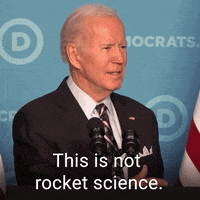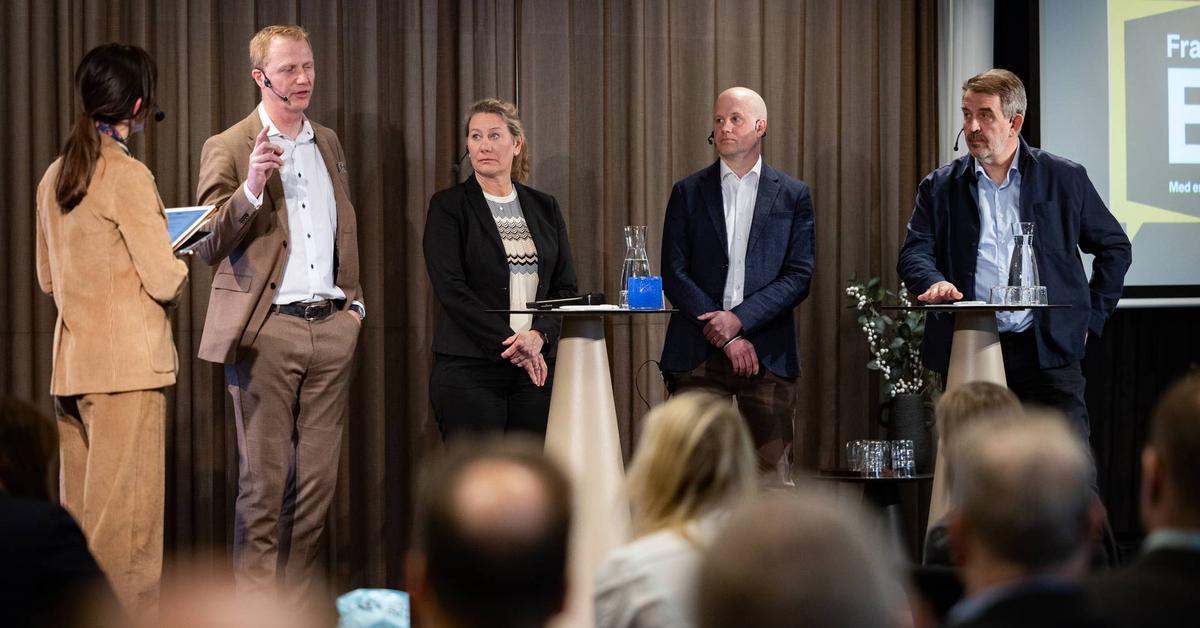"Companies' demands on EU politicians: How we safeguard competitiveness
Sustainability issues are a hot topic in the election campaign ahead of the European Parliament elections. "We need MEPs who are more well-informed and look at the big picture. This will make it easier for us to avoid legislation that could be counterproductive for the green transition," said Henrik Sjölund, CEO of the forestry company Holmen, during a debate organised by the Confederation of Swedish Enterprise.
View attachment 60694
Can the single market and the green transition go hand in hand? And what is the EU doing to promote a sustainable and competitive business sector? These were some of the issues discussed in connection with the Confederation of Swedish Enterprise's EU debate in Luleå, where politicians and companies debated the future of the EU ahead of the upcoming European Parliament elections.
On one thing, the company representatives were in agreement. The EU is crucial for business and that there is a need for energetic Swedish parliamentarians to drive the issue of competitiveness during the next term of office. There are many points to address here.
It is a pity that public money is being spent on existing technology in the EU when it should be funding new green technology.
Christina Friborg
Senior Vice President, Sustainability, SSAB
Christina Friborg, Sustainability Director at steel giant SSAB, called for an EU that ensures equal competitive opportunities.
"In order to level the playing field internationally, we need to ensure that the trade rules for sustainable products are also adapted outside the EU, for example by introducing carbon tariffs. It is also a shame that public money is spent on existing technology in the EU when it should be financing new green technology," says Christina Friborg.
View attachment 60702
She is supported by Holmen's CEO Henrik Sjölund, who sees a similar problem in the EU as well.
"There is currently a competition for state aid between member states. That wasn't the intention at all. It's misery now that Germany is spending 2,000 billion crowns on energy-intensive investments," he says.
David Öquist, CEO of biodiesel manufacturer Sunpine, wants the EU to put the nail in the coffin of the fossil-fuelled market and quickly phase out an outdated system that holds back new technologies and solutions.
"We in Europe must dare to have a clear focus in this area. I don't think the future is fossils. If you stick with that, you're not going to come out as a winner," he says
Giving praise
Per-Erik Lindvall, Chairman of the Board of Talga Group, which manufactures battery materials extracted from Swedish mines, began by praising the parliamentarians in their work to reduce mineral dependence on China, for example.
"I'm very proud of the Critical Raw Materials Act, which clearly points out the mining industry as a priority and will finally make it easier to obtain environmental permits," he says.
View attachment 60703
View attachment 60704
The caveat is that the EU's progress will do little good if the rules are still over-implemented at home, which hinders the establishment process.
"I've experienced that it can take 1.5 to 8 years to get permits for new mines. We are talking about the need to build new railway projects, to expand electricity capacity and to open new mines. But it doesn't matter how much we invest if we don't have officials who also see the benefits of building new green industry. Then the whole of the EU risks being overtaken," he says.
Mr Vidare calls for more flexibility in the area of free trade.
"When we build new industry, we can't have rules that let in unfair competition from China, which dominates the market for minerals. Here, parliamentarians have a responsibility not to be so principled all the time.
View attachment 60705
Henrik Sjölund at Holmen also wants to see simplified permit processes, as it is crucial if the forest company is to be able to electrify its industrial processes.
"I believe that the Environmental Code is the Nordic region's biggest obstacle and is not at all adapted to the EU's new climate ambitions," he says.
Well-informed parliamentarians
Ahead of the next term of office, Henrik Sjölund is looking for MEPs who are more well-informed and look at the big picture. This will make it easier for us to avoid legislation that could be counterproductive to the green transition.
"It's important to have politicians who understand how the big picture is connected. Today, people work a lot in silos and there are few who want to raise issues in the gutter," he says.
In the run-up to this year's European elections, politicians are pulling in different directions around the interplay between competitiveness and the green transition. What do the Swedish politicians think? Is competitiveness an important driving force for a sustainable business sector?
"I will be forthright and say that I see conflicts between competitiveness and environmental ambitions," says Tomas Brandberg, who is running for the European elections for the Sweden Democrats.
View attachment 60706
The incumbent EU parliamentarian Emma Wiesner (C), who is a member of the liberal party group Renew Europe, is of a completely different opinion.
"I don't see why one needs to take out the other. I do not think you can focus too one-sidedly on sustainability or too one-sidedly on competitiveness. During the last term of office, we have put a lot of focus on climate ambitions, but in the future it is important that competitiveness issues are increasingly highlighted," she says.
View attachment 60707
According to Anna Maria Corazza Bildt (L), EU veteran for the Moderate Party with a view to a new parliamentary term for the Liberals, believes that Sweden needs to approach EU politics even more if we want to see a change.
"If we want to represent Sweden's interests, we can't sit in the gallery and complain. Rather, I think we should engage as a constructive and dynamic player in the core of Europe's cooperation. We need to go from whining to glowing," she says.
No time to back off
Lisa Nåbo, SSU's president, who is a candidate for the European Parliament for the Social Democrats, also sees improvement measures in climate policy. But that must not be an argument for withdrawing climate ambitions.
"Today's young people have a very gloomy view of the future. As a consumer, you feel confused about what is a sustainable product and it is difficult to know how to do the right thing. But the solution does not lie in letting in climate-denying ideas, I think that is both harmful to the industries and our way of life.
On the business side, at least David Öquist at Sunpine is looking for parliamentarians who want to strengthen the EU's common climate ambitions and at the same time promote competitiveness.
"The goals are there for a reason. There is a risk that if you do not reach the targets, you will lower them. I think that's directly counterproductive to the development we want to see," he says.
Christina Friborg at SSAB sees no alternative on this point either. But then politicians must take greater account of the conditions for companies.
"As long as EU politicians give us the right conditions, we can deliver the goals."
Inför EU-valet efterlyser företagare mer pålästa EU-parlamentariker för att främja en hållbart tillväxt.

www.svensktnaringsliv.se


